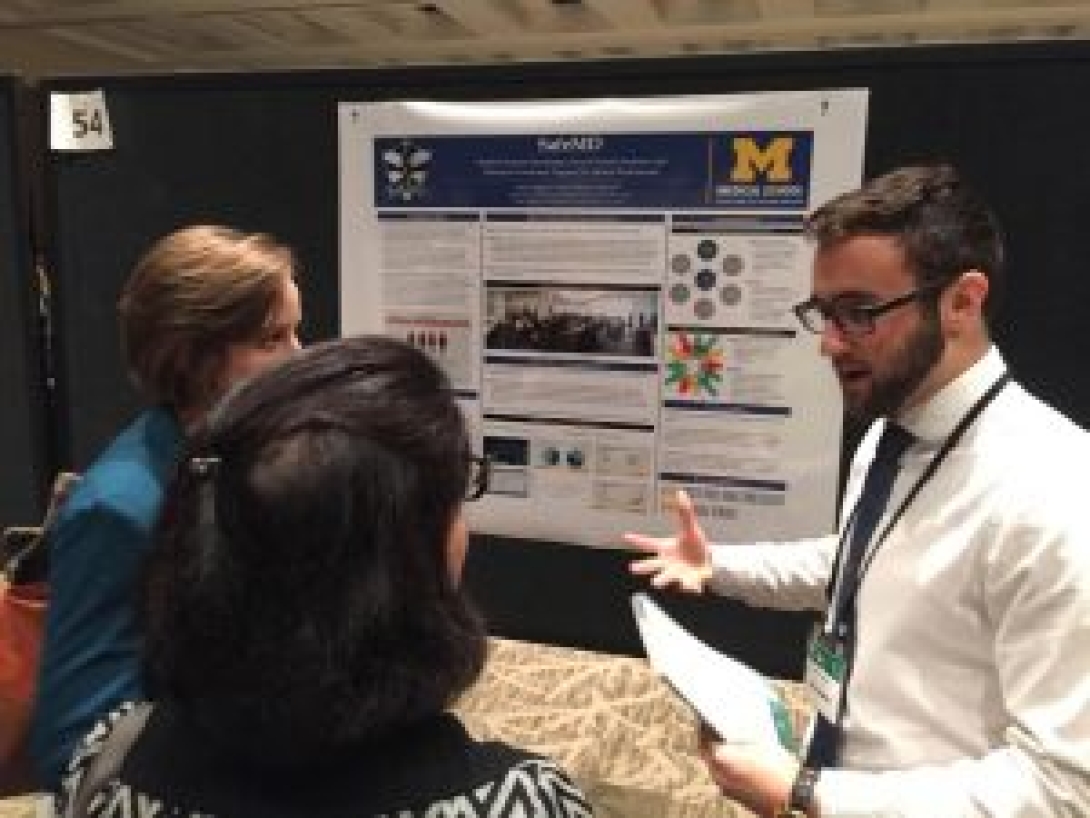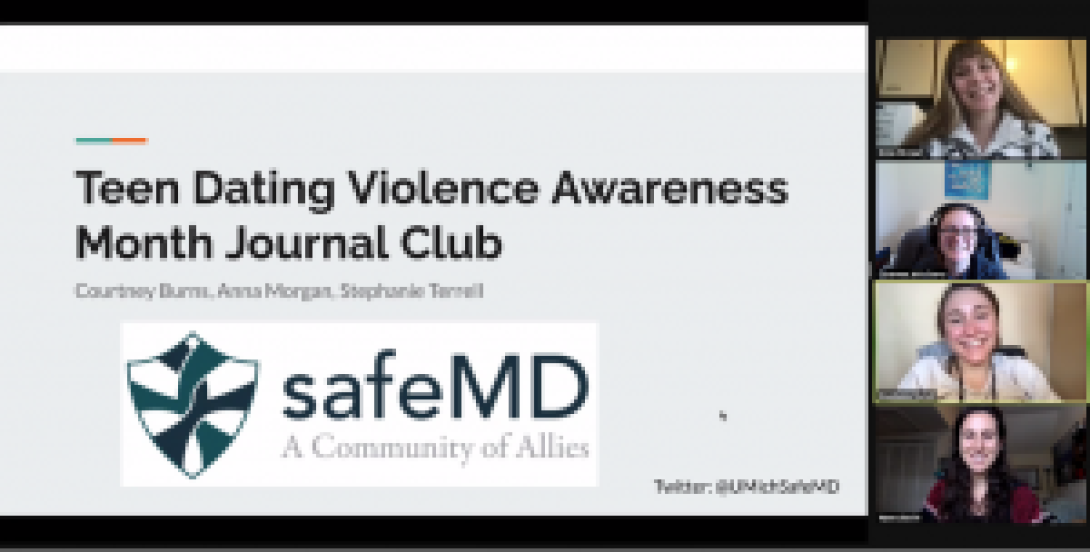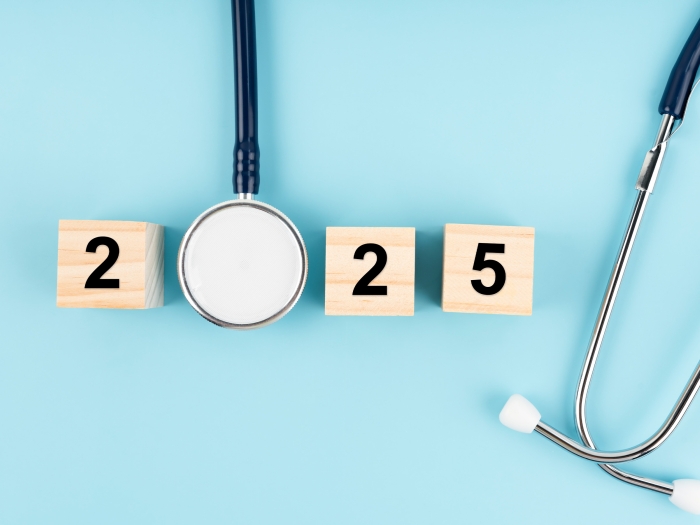1:50 PM
Content warning: This post will contain discussions of sexual violence and misconduct. We recognize that readers of this post may have experienced sexual violence firsthand and/or have loved ones that are survivors. Supportive listening, help, and resources can be found at RAINN.
Our names are Anna, Courtney, and Stephanie, and we are the M1 leads for SafeMD, an organization founded in 2015 to promote an environment in which sexual assault is illuminated, understood, actively combated, and not tolerated. The three of us were deeply involved in sexual assault prevention and awareness prior to medical school and were eager to continue this work during our medical training.
SafeMD members presenting a poster at Health Professions Education day in 2018.

Anna spent her undergraduate years working with the Sexual Assault Prevention and Awareness Center at the University of Michigan and spent her gap year doing research on trauma-informed care. Courtney has an extensive history of engagement with activism to support survivors of sexual violence and spent her gap year working at a domestic violence shelter in rural Michigan. Stephanie has been involved with Title IX advocacy and survivor support and is currently studying applications of trauma-informed care.
Specifically, we are working to promote an environment in which survivors of sexual violence have access to and are aware of supportive resources in the medical community. We hope to provide future medical professionals with the necessary education to become proficient in caring for patients who have experienced trauma with nuance, skill, and empathy. To accomplish these goals, the founders of SafeMD in 2015 developed the initial projects of the organization: Allyhood Training and the Launch (M1 orientation) presentation.
SafeMD founder Seth Klapman presenting at the AAMC conference in 2016.

Since 2015, the role of SafeMD has evolved and expanded to fill identified gaps in the curriculum. For example, during this year's M1 sequence on reproductive sciences, SafeMD invited a sexual health educator at the University of Michigan's University Health Service (Laura McAndrew, MPH, PMP) to present on the origins and implications of sexually transmitted infection stigma, its impact on sexuality, and how to provide affirming care that increases treatment engagement and reduces inequities.
During February, Teen Dating Violence Awareness Month, SafeMD held a virtual journal club to raise awareness about the causes and consequences of adolescent dating violence. Additionally, because the M1 didactic session on intimate partner violence (IPV) in healthcare settings was asynchronous this year due to COVID-19, SafeMD hosted a live, interactive virtual session with the intimate partner violence (IPV) Doctoring content lead (Dr. Vijay Singh) to provide information on how healthcare providers can identify and respond to IPV.
SafeMD executive board members hosted a virtual journal club in February 2021 for Teen Dating Violence Awareness Month.

SafeMD has also developed a trauma-informed care workshop for medical students. Trauma-informed care in the healthcare field is an approach that assumes that a patient is more likely than not to have a history of trauma, and advocates for the promotion of a safe, transparent, and empowering patient-provider relationship. This interactive workshop, designed by current SafeMD executive board member Isabel Lott and former member Petrina LaFaire, was designed to provide medical students with an understanding of the principles of trauma-informed care and the importance of IPV screening, as well as give students a chance to gain confidence in effectively treating and communicating with a patient who has a history of IPV.
SafeMD Allyhood Training in 2017.

As SafeMD continually strives to maximize our impact on the Medical School community, we have incorporated self-analysis of training efficacy into the workshop by deploying a pre-post retrospective questionnaire to elicit feedback on the strengths and weaknesses of the intervention. We were able to analyze our data from Allyhood Training and present a poster at Health Professions Education Day. Furthermore, SafeMD also works with the Medical School's Student Diversity Council to ensure that the curriculum is reflective of the fact that physicians across all fields of medicine will care for survivors of sexual violence during their careers.
Additionally, we are collecting messages of support for survivors of sexual violence throughout the month and will be organizing these into an art piece to be displayed long-term in Von Voigtlander Women's Hospital.

If you're interested in SafeMD, be sure to follow us on Twitter @UMichSafeMD and visit our website https://sites.google.com/umich.edu/safemd/!
University of Michigan Medical School
Want top health & research news weekly? Sign up for Health Lab’s newsletters today!





